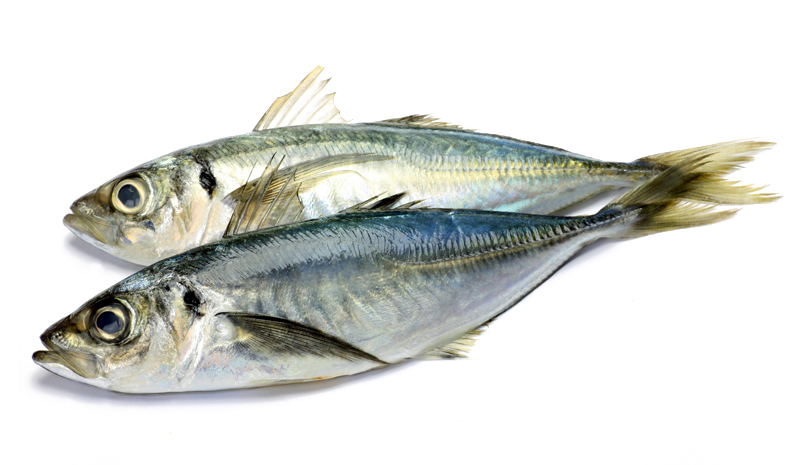
HORSE MACKEREL / Trachurus trachurus
Pelagic fish which is very common in the North Atlantic; it lives between 100 and 500m. deep, creating dense shoals; it can be found in warm waters and currents. It is a fusiform shaped long fish with pale flanks. The fins and the back can be grey or greenish except the belly, which can have different shades of white or silver. The head is pointed, eyes and mouth are very big relative to the head. It can be longer than 30 cm long, up to 60 cm.
Launch format | Whole Horse Mackerel I.Q.F.
| Pcs./Kg. | cm. | Grams |
|---|---|---|
| 2/3 Pcs. | +28 | 350-500 gr. |
| 3 Pcs. | +28 | 300-350 gr. |
| 3/4 Pcs. | +25 | 250-300 gr. |
| 4/5 Pcs. | +25 | 180-250 gr. |
| 6/7 Pcs. | +18 | 150-180 gr. |
| 7/8 Pcs. | +18 | 125-150 gr. |
| +8 Pcs. | -18 | – 125 gr. |
-
Bag 1 Kg. Net
-
Bulk box 10 Kg. Net
-
Bulk box 15 Kg. Net
-
Bulk box 20 Kg. Net
Nutritional value
Nutrition specialists around the world agree with the importance of this fish, a product high in proteins, fat, vitamins and mineral salts. They also confirm that including it as part of our diet is irreplaceable, particularly if you are looking for a balanced, healthy and complete diet.
The horse mackerel, as it is a oil-rich fish, is a greasy fish. This fat is rich in omega-3 fatty acids; this helps to reduce the level of cholesterol and triglycerides which at the same time collaborate to reduce the risk of heart illness and blood vessels.
The horse mackerel is a good source of proteins with a high biologic value which also contains important quantities of vitamins and minerals. Regarding vitamin B2, this is more abundant in rich-oil fish than in white fish, and it has a significant content if vitamin B3. Likewise, vitamin B12 is present in important quantities even more than in eggs, dairy products and the majority of meats. In general, vitamins from group B allow the energy nutrients to a maximum, (carbohydrates,fat and proteins). These vitamins intervene in many organic processes like red corpuscles formation, synthesis of genetic material or the function of the central nervous and immune systems.
| Type | Per 100 gr. |
|---|---|
| Energy (Kcal) | 127 |
| Proteins (gr) | 15,7 |
| Fat (g) | 6,8 |
| Iron (mg) | – |
| Magnesium (mg) | 31 |
| Iodine (mg) | 10 |
| B1 or thiamine (mg) | 0,09 |
| B2 or riboflavin (mg) | 0,3 |
| B3 or niacin (mg) | 9 |
| B12 or cyanocobalamin (mcg) | 10 |
| Vitamin A (mcg) | 16 |
| Vitamin B (mcg) | 36 |

